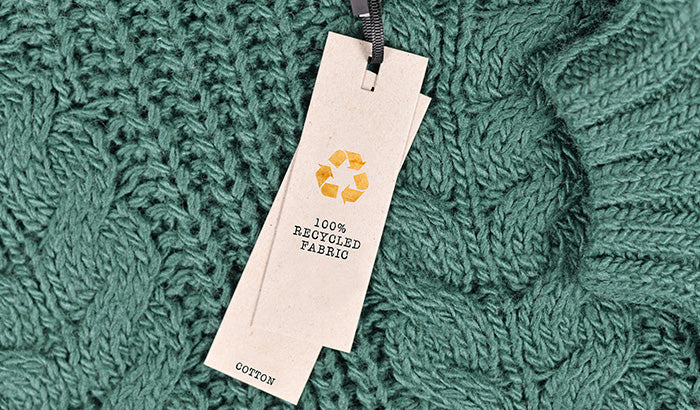What's New at Wazoodle
What's New

In our world, where our landfills should be empty but aren’t, small steps toward being eco-friendly can add up to make a big difference. But what exactly is eco-friendliness? And how can you be more conscious about making eco-friendly choices in your life?
Today’s blog explores what it means to be eco-friendly and what that can look like for you. It might seem like a daunting task to take on, but it turns out that small, simple steps can make a difference for our planet.
Keep reading to learn all about eco-friendliness.
Ever feel like the word “eco-friendly” gets tossed around a lot? We hear you. Along with other common phrases like “environmentally friendly,” the actual meaning of these words can get lost in translation or lose importance.
If you look up eco-friendly in the dictionary, you’ll see a simple meaning – “not environmentally harmful.” But these three words are important when you understand everything that can harm the environment.
PFOS, PFOA, lead, dioxins, heavy metals, BPA, phthalates, and super absorbent polymers are all toxic. In short, being eco-friendly means that none of these toxins can be present in the product you’re purchasing.
Eco-friendly isn’t the only term used to describe environmentally-friendly products. If you see a label that reads “environmentally friendly,” “eco-friendly,” or “earth-friendly,” it means that it won’t hurt the environment.
The term “green” means that the product is eco-conscious. In other words, the manufacturer made an effort to consider how the product could affect the environment. Although many people think it is not the same as being eco-friendly.
The terms “sustainable” or “sustainability” have multiple definitions, but most people associate them with making minor changes to help the environment.
You want to avoid being deceived into thinking that a product is eco-friendly when it’s not.
Greenwashing is a fancy way of saying that you’re being deceived. There are various ways that manufacturers can deceive consumers. See a laundry detergent bottle that’s labeled “free of phosphates”?
That’s great, but laundry detergent hasn’t contained phosphate in a long time, so there’s nothing special about that laundry detergent. The manufacturer placed the label on the bottle to make you think they’re more eco-conscious than they are.
Be wary of “all-natural” bedding. An element of the bedding could be natural, like being made with plant-based materials. But there’s no such thing as bedding that is entirely natural. Most bedding is exposed to chemicals during the manufacturing process.
Beware of products labeled “biodegradable” or “recycled” but that can’t easily be recycled because of overflowing landfills and materials that take a long time to break down. Yoga mats are an excellent example of this.
To avoid greenwashing, pay careful attention to different labels and what they mean. There are tons of labels, so many that it can get overwhelming to know what’s legitimate vs. what’s not. Let’s look at what some labels mean.
Of course, just like any law, the definition of eco-friendliness is only as good as it’s enforced. The Federal Trade Commission regulates eco-friendly claims, ensuring you’re getting the kind of product you want: an eco-friendly one. Some rules must be followed at every step to receive the eco-friendly stamp of approval.
A section of the FTC website known as Green Guides provides manufacturers with all the information necessary to meet FTC requirements.
It’s not difficult to be eco-friendly. As we mentioned earlier, making small changes can make a big difference. Here are eight ways you can be more eco-friendly.
The goal should be to reduce how much waste you produce, support brands that care about the environment, and lower your overall carbon footprint.
Buying second-hand, reusable, or recycled items means that less needs to be produced, eliminating more waste from being created. Plant-based cleaners avoid chemicals that can make you sick and harm the environment.
Using concentrated products means you buy a large bottle that you later dilute with water in reusable bottles, thus reducing the plastic waste from non-concentrated products.
As part of Wazoodle’s efforts to be as eco-friendly as possible, we make all our fabrics safely and ethically, and we’re completely transparent in our efforts to care for people, the planet and environment. We never use harmful dyes, toxic chemicals, or solvents, nor do we generate toxic waste or disposable trash during production.
Our products are easy to reuse and recycle, eliminating the problems that come with some “eco-friendly” products. Plus, everything is made right here in the U.S. in controlled conditions in American textile mills, where we provide safe working conditions and enforce fair labor practices.
Are you a manufacturer looking for the right eco-friendly fabric for your product? Do you purchase fabrics to make your own products at home? Either way, Wazoodle Fabrics has you covered when it comes to fabrics.
Our 100% eco-friendly products are CPSIA certified and are free of PFOS, PFOA, lead, dioxins, heavy metals, BPA, phthalates, and super absorbent polymers.
We have fabrics for anything you can think of. Need a super-absorbent material? Try Zorb. Need fabric that you can store food in? Our FoodSAFE fabrics meet 21 CFR requirements. Work in the healthcare industry? Try MediPUL. And the list goes on!
Continue your eco-friendly efforts with Wazoodle Fabrics. Get started with 4x4 swatches of our fabrics to see which is right for you. Not sure which fabrics to try? Contact us, and a team member will be happy to help you choose! Let’s make our world more eco-friendly together!